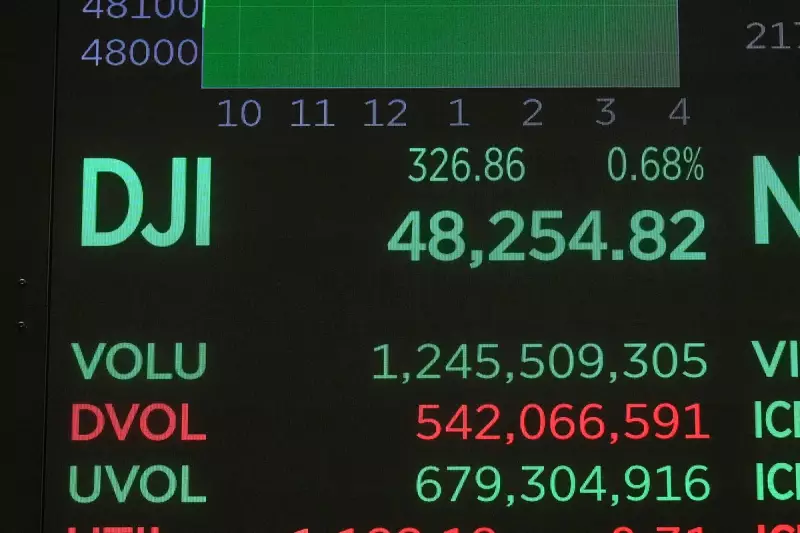
Asian markets delivered a mixed performance on Thursday as investors digested the end of America's record-breaking government shutdown and ongoing volatility in artificial intelligence stocks.
Government Shutdown Resolution Boosts Sentiment
The trading day began with positive momentum from the United States, where President Donald Trump finally signed a government funding bill on Wednesday night. This action concluded a 43-day shutdown that had created significant financial strain for federal workers, disrupted air travel, and overwhelmed food banks across the country.
Japan's Nikkei 225 responded positively, climbing 0.2% to 51,139.48 as market participants welcomed the resolution. Stephen Innes of SPI Asset Management noted that the shutdown had not only frozen spending but also delayed crucial federal economic data releases, commenting that for markets, "the only line that matters is simple: the lights are coming back on."
Divergent Performances Across Asian Markets
While Japan celebrated the political resolution, other Asian markets told different stories. Hong Kong's Hang Seng index declined by 0.6% to 26,766.71, while mainland Chinese stocks showed resilience with the Shanghai Composite edging up 0.4% to 4,016.24 ahead of anticipated lending updates.
Australia's S&P ASX 200 faced more significant pressure, falling 1% to 8,715.00 for its third consecutive losing session. This downturn came as robust employment figures showed unemployment dropping to 4.3% in October from 4.5% the previous month, dampening hopes for near-term interest rate cuts.
Other regional markets showed modest movements, with South Korea's Kospi fluctuating before settling 0.1% higher at 4,154.03. Taiwan's Taiex index surrendered earlier gains to drop 0.1%, while India's BSE Sensex shed 0.2%.
AI Stock Volatility and Wall Street Records
The previous trading session on Wall Street saw mixed results despite the broader market hovering near record levels. The S&P 500 added 0.1% to 6,850.92, remaining close to its all-time high established weeks earlier. The Dow Jones Industrial Average jumped 0.7% to set a record at 48,254.82, while the Nasdaq composite slipped 0.3% to 23,406.46.
Advanced Micro Devices emerged as a standout performer, surging 9% after CEO Lisa Su projected better than 35% annual compounded revenue growth over the next three to five years, citing "accelerating AI momentum" as the driving force.
However, the artificial intelligence sector that has powered much of the market's recent gains showed signs of instability. Investors are increasingly questioning whether AI stocks can maintain their spectacular growth trajectory. Nvidia, which has seen its stock price more than double in four of the last five years, entered the day with a 4.6% decline for the month. Another AI favourite, Palantir Technologies, fell 3.6% for one of the S&P 500's larger losses.
Market analysts note that these AI-driven stocks have been crucial in propelling US markets to record levels despite concerns about a slowing job market and persistent inflation. Yet their soaring valuations have drawn comparisons to the dot-com bubble of 2000, which eventually burst and dragged the S&P 500 down by nearly half.
In early Thursday commodities trading, US benchmark crude oil fell 6 cents to $58.43 per barrel, while Brent crude, the international standard, shed 3 cents to $62.68 per barrel. The US dollar strengthened slightly against the Japanese yen, rising to 154.83 yen from 154.70 yen, while the euro dipped to $1.1589 from $1.1594.





